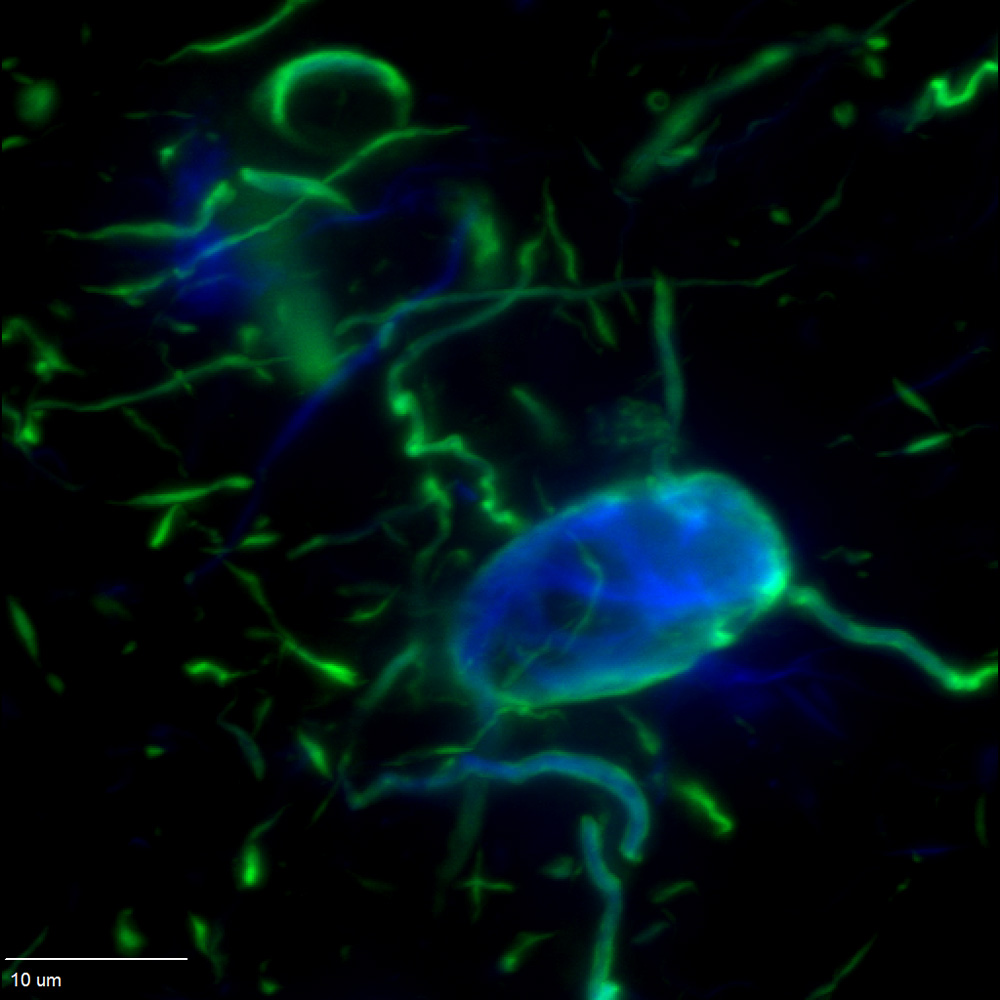
Higher levels of pTau found in Alzheimer’s disease patients with psychosis
People with Alzheimer’s disease suffer from severe memory loss and often have problems focusing, reasoning, and communicating. About half of all Alzheimer’s patients also experience delusions and hallucinations, this is called Alzheimer’s disease with psychosis, and scientists at the University of Pittsburgh are learning more about this severe version of the disease.
In a recent study, researchers at Dr. Robert Sweet’s lab zeroed in on a protein called tau, which forms tangles in the brains of Alzheimer’s patients, and along with amyloid plaques is one of the major hallmarks of the disease. But despite being involved in these pathological conditions, tau and amyloid may instigate other processes as well – namely, synaptic toxicity, which the authors say is “the strongest correlate of cognitive decline in Alzheimer’s disease.”
Recent research suggests that amyloids (misfolded proteins) drive the deterioration of synapses, but phospho-tau (tau, which has undergone phosphorylation), enables the process. So in their study the Pittsburgh research team analyzed the presence of tau in the prefrontal cortex, a region of the brain involved in higher processes, of 45 Alzheimer’s disease patients with and without psychosis.
Using Stereo Investigator, they outlined the entire mantle of the middle frontal gyrus grey area of the prefrontal cortex. They then used the software to generate a sampling grid, using the outlined grey area from two sections of each brain section to calculate grid size. Targeting 10 sample sites per individual, the researchers created 3D images of the region, identifying pTau with the AT8 antibody.
Immunoreactive fluorescence intensity revealed that subjects with psychosis had higher concentrations of pTau within individual neurons compared to Alzheimer’s disease patients without psychosis, while a measure of the spread of pTau throughout the region (volume fraction) showed no difference between groups.
“These novel findings indicate that tau phosphorylation may be accelerated in AD with psychosis, indicating a more dynamic, exaggerated pathology in AD with psychosis,” the authors say in their paper.
Murray, P. S., Kirkwood, C. M., Gray, M. C., Fish, K. N., Ikonomovic, M. D., Hamilton, R. L., Kofler, J.K., Klunk, W.E., Lopez, O.L., Sweet, R. A. (2013). Hyperphosphorylated Tau is Elevated in Alzheimer’s Disease with Psychosis. Journal of Alzheimer’s Disease.



